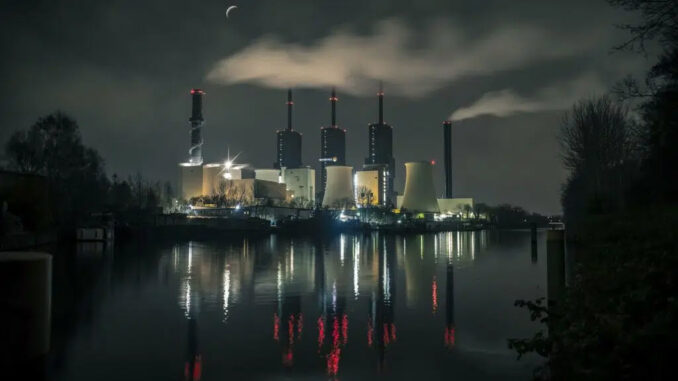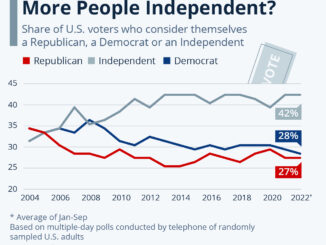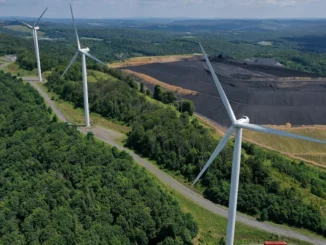
Late last month, in West Virginia v. EPA, the Supreme Court officially killed the Clean Power Plan, the Obama administration’s signature approach to reducing greenhouse gas emissions from the power sector. In practice, however, the Clean Power Plan was already dead: The plan was put on hold by the Supreme Court shortly after its 2015 enactment and never took effect. And because the plan’s emission targets were achieved anyway due largely to market forces, the Biden administration has been contemplating new power-sector rules entirely.
Why would the Court’s conservative majority bother striking down a dead rule? There are two potential reasons—one that creates a barrier for future power-sector rules, and another that looms as a potential threat to a broader swath of other climate and public safeguards.
West Virginia’s narrower effect is to constrain how the US Environmental Protection Agency (EPA) can craft future power-sector regulation, although the EPA retains the authority to limit power-sector greenhouse gas emissions. Specifically, the decision prevents the EPA from setting collective emission-reduction targets for all power plants based on the assumption of the generation of electricity shifting from coal- and gas-fired plants to cleaner sources.
Removing this type of “generation-shifting” from the EPA’s toolkit will unnecessarily hamper the agency’s efforts to reduce emissions from the power sector, but other options remain. For future rules, the EPA will likely look toward mitigation strategies achievable at individual plants such as co-firing and carbon capture. Even though the EPA previously concluded that the Clean Power Plan’s systemwide approach was more efficient, its remaining tools can still deliver meaningful reductions.
But none of this is news to the Biden administration. Sensing the legal uncertainty of a systemwide regulation, the EPA was already refocusing its power-sector ambitions while taking a more comprehensive approach to curbing climate pollution across other sectors. This includes rules to reduce emissions from transportation, energy extraction, and appliances. Beyond the EPA, other agencies have proposed or finalized actions that are informed by the long-term transition away from fossil fuels.
The Biden administration was never all-in on a single policy, opting instead for a broader strategy to deliver meaningful climate progress. That’s where the second implication of the Supreme Court decision could potentially complicate things.
In West Virginia, the Supreme Court relied on an anti-regulatory interpretive approach that has come to be called the “major questions doctrine.” Although this “doctrine” did not exist until recently and was applied just a few times before 2020, the Supreme Court has now invoked it three times in the past year to strike down significant Biden administration programs. In those decisions, the court applied the doctrine more aggressively than it had before.
The major questions doctrine turns traditional principles of statutory interpretation on their head. Whereas courts normally defer to an agency’s reasonable interpretation, the major questions doctrine does the opposite. Under this doctrine, when a regulation crosses a certain threshold of being “major”—a line which remains poorly defined—the Court rejects the regulation unless it is has been clearly authorized by Congress. Under the majority’s analysis, the Clean Power Plan crossed that threshold because it sought to dictate the nation’s fuel mix rather than focus narrowly on pollution control.
Opponents of President Biden’s energy and climate agenda are already angling to attack new regulatory initiatives under the major questions doctrine, routinely citing the doctrine as if it were the only relevant interpretive principle. In a particularly brazen example, Texas’ attorney general argued last week that the doctrine restricts the Nuclear Regulatory Commission from licensing nuclear waste facilities.
But while the Court’s embrace of the nascent major questions doctrine is alarming, the doctrine remains the exception rather than the rule and does not necessarily spell doom for other policies. The Court acknowledged that the major questions doctrine applies only in “extraordinary cases” and singled out the Clean Power Plan as both economically transformative and historically unprecedented. That argument is much harder to make for other key Biden administration policies.
For instance, the administration’s regulatory policies to reduce emissions from other sectors—such as hydrofluorocarbons from appliances and methane from energy extraction—rely on tried-and-true approaches that should not raise serious concerns of agency authority. Efforts to boost renewable energy not through regulation but rather through government spending (for example, electrifying the federal fleet of vehicles) or land stewardship (e.g., leasing federal waters for wind farms) are not susceptible to these sweeping attacks.
Other initiatives will be more closely contested but remain on firm footing. For instance, while red-state challengers are characterizing the EPA’s new rule to cut vehicle tailpipe emissions as an inappropriate attempt to electrify the fleet that violates the major questions doctrine, the rule only incidentally boosts electrification using the same approach as prior EPA tailpipe regulations.
Or consider a recent Federal Energy Regulatory Commission proposal to account for climate impacts as one factor in the permitting of interstate natural-gas pipelines. While gas industry giants claim that this proposal violates the major questions doctrine by transforming the commission into a climate regulator, the commission and its predecessor have considered the effects of natural-gas consumption—including downstream environmental impacts—for 80 years, fulfilling the Natural Gas Act’s mandate to ensure that natural gas is used judiciously and in service to the public interest.
A proposal by the Securities and Exchange Commission (SEC) to require public companies to disclose certain climate risks is similarly well-grounded. The rule falls squarely within the SEC’s authority to protect investors and also has considerable precedent. And the SEC requiring companies to disclose additional risks is not remotely akin to the EPA transforming the power grid.
Under the current articulation of the major questions doctrine, therefore, the Biden administration’s agenda remains on solid ground.
But there’s a caveat: The Supreme Court’s conservative majority often expands its doctrines gradually, frequently to reach the decision favored by Republican politicians and entrenched industry. And lower-court judges—some of whom are hostile to environmental, health, and consumer protections—feel increasingly empowered to do so preemptively. While the major questions doctrine remains the exception for now, it could ultimately swallow the rule.
So while the Biden administration should move full speed ahead with its climate agenda, the administration and its supporters must be prepared to defend those initiatives against newfound attacks. West Virginia is a setback for climate policy but won’t be the final word.



